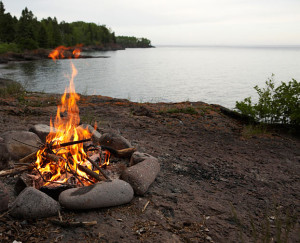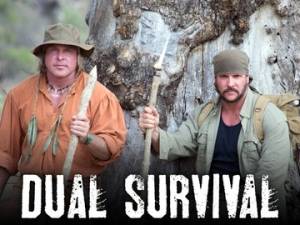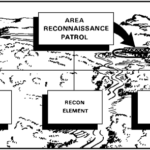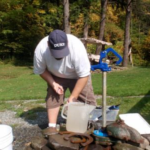We talk about survival tips in a way that makes it sound like “just do these three things and you’ll be able to survive anything.”
But that’s far from the truth. In reality there are so many different ingredients in the stew we call survival, that they’re almost impossible to list. Generally, what gets talked about are the physical tasks, supplies and tools needed to survive; and while those are important, it seems we end up leaving some of the more intangible, but equally important, things out of our discussions.
I want to take a moment to look at some of those intangibles. In a true life or death situation, they could be what keep you alive. That’s not to say that the physical tasks aren’t important, just that physical tasks, without the right mental tasks, aren’t enough.
Keep a Positive Attitude
Here’s the number one survival tip….One of the most important things you can do for yourself in a survival situation is maintaining a positive mental attitude. If you are sure you’re going to make it, you’re much more likely to do the things that will help you survive. On the other hand, if you think you’re going to die, you’ll be sloppy and haphazard about survival tasks, literally allowing yourself to die.
Doctors have found that this is important with critically ill patients, such as those who have cancer. Patients who maintain a positive attitude statistically have a much better chance of overcoming their illness and going on to live productive lives. Those who are convinced that they’ll die, usually die.
The same can be said for gunshot wounds. Studies have been done, showing that police officers who expect to die if they are shot, generally end up dying, even if they receive a superficial wound. On the other hand, there have been many cases of officers who were critically wounded by multiple shots, but somehow managed to pull through. Why? Because they decided they would.
Keep Your Head on a Swivel
By definition, I guess that you could say a survival situation is one in which you have to concentrate on surviving, because you don’t have the comfort of “normal life” protecting you. There are usually a number of dangers involved in any survival situation, some of which aren’t all that easy to perceive.
Situational awareness is extremely important in any survival situation. Something as simple as not watching where you are walking could result in a broken leg. While that won’t kill you, it will make it harder for you to gather food and water. It will also make it much easier for either two or four legged predators to get you.
Maintaining situational awareness not only helps you to protect yourself, it can also help you find opportunities to make survival easier. If you’re walking down the road in the suburbs, you might see something in someone’s garbage which can help you survive. If you’re out in the wild, you might see a good natural shelter you can use or something edible that you can gather.
Learn as Much as You Can
The most important survival tip you can find is knowledge. Your tools may fail, but if you’ve got enough knowledge, you’ll find another way of doing it. It’s always amazing what the survivalists on reality survival TV shows find that they can use to survive with. Granted, they’re experts, but you can become one too. They look at everything with an eye towards seeing how they can use it to help them survive.
After over 30 years of study, I can clearly state that no matter how much you know, there’s always more to learn. How many ways of starting a fire do you need to know? One more than you already do. Maybe the 20 ways you know won’t work in a situation; if that’s so, you’d better know number 21.
Become a Creative Problem Solver
This one goes hand-in-hand with what I said about the survival TV shows. If you have to bug-out, I seriously doubt you’re going to find a canteen sitting in the middle of the woods, waiting for you. However, you might find other things which can be used to carry water. Train yourself in coming up with innovative ways to solve a problem.
The best way to train yourself on this is to make a game of it. Pose hypothetical situations to yourself and try to come up with solutions. You could even make a family game out of it, with each family member taking turns posing problems for the rest of the family to solve. A great way to pass a boring ride in the car.
Practice, Practice, Practice
You want a survival tip…here’s one…I don’t care how much you learn, until you do it yourself, you don’t know how to do it. I’ve probably watched 30 different videos on how to start a fire using a bow drill. But you know what? The first few times I tried, I was a complete failure. Many of the skills we expect to depend on are extremely hard to do the first time, or even the first dozen times.
If you have to waste time learning survival skills when you are already in a survival situation, you may not have enough time to do everything you need to. Time spent practicing, before you need the skills, is time that is well spent. That way, hopefully, when you need the skills, you’ll be able to use them, without wasting any time.
Don’t Depend on One Cache
Most of us either have or are building a fairly good survival cache in our homes. If we’re fortunate enough to have a bug-out retreat, we’re probably making a stash there as well. Both of those are great, but they’re really not enough. When the time comes, you may not be able to reach either of them.
If your home is under 20 feet of water, all the supplies and equipment you have there aren’t going to do you the least bit of good. An alternate cache or two, stocked with a bug-out bag, a weapon and some warm, rugged clothing could make all the difference in a survival situation like that. Since none of us know what the future may hold, it’s a good idea to be prepared for anything.
The Only Useful Stuff is what You Have With You
When it comes down to it, the only survival equipment and supplies you can use are those that you actually have with you. That’s why an everyday carry bag is so important. I use mine for double duty, making it a get home bag as well. If I have to, I can survive with what I’ve got in that bag.
I don’t care if you’re talking about weapons or fire starters, what you’ve got back home, when you’re not at home, isn’t going to do you the least bit of good. Always make sure that you’ve got things where you can get to them, when you need them.
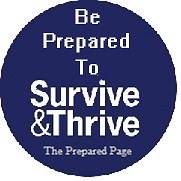
Some posts may contain affiliate links

